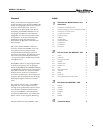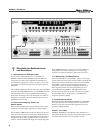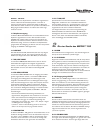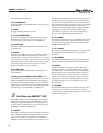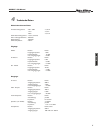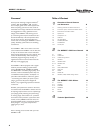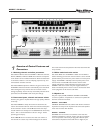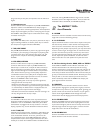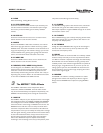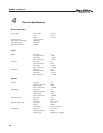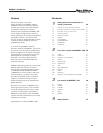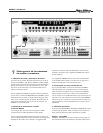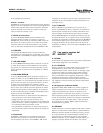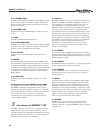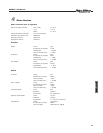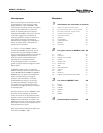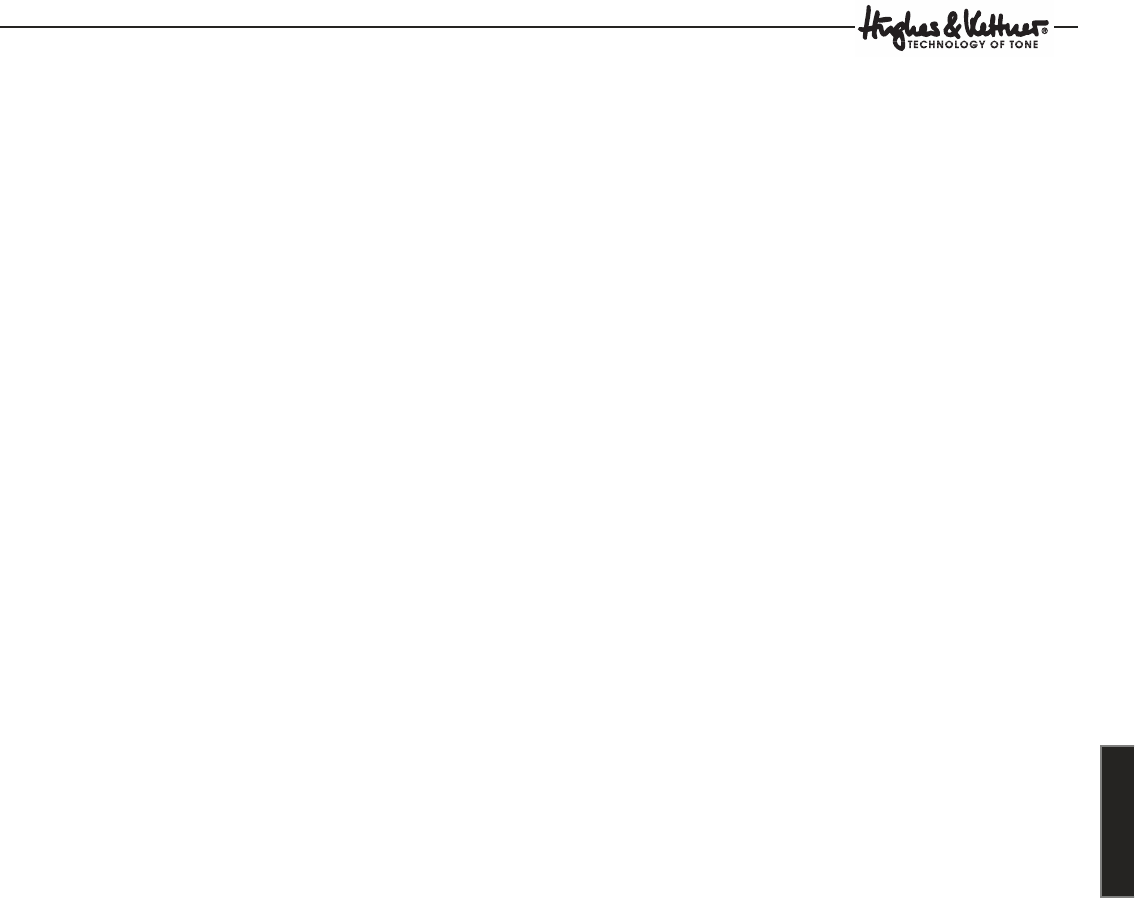
MATRIX™ 100 Manual
english
2.3 LEAD
Yields hard-hitting, snarling British rock tone.
2.3.1 LEAD/WARP GAIN
Controls the LEAD and WARP channel’s input sensitivity and
thus the amount of saturation, with distortion option ranges
from creamy smooth to British grit and chunky NuMetal
thunder.
2.3.2 LEAD Vol
Controls the LEAD channel’s level; use it to determine the
balance between it and the other channels.
2.4 WARP
Beware! The MATRIX™ 100’s heart of darkness, this channel
offers fi erce high-gain sounds of a fl avor favored by popular
NuMetal bands. This brand of distortion is best described as an
angry roar. Depending on this channel’s settings, you can dial
monster NuMetal tone, grinding post-grunge and alternative
sounds, and thunderous death and Gothic metal noise.
2.4.1 WARP VOL
Controls the WARP channel’s level; use it to determine the
balance between it and the other channels.
2.5 CRUNCH, LEAD, WARP Voicing Section
For handling ease, the MATRIX™ 100’s three overdrive
channels share common voicing controls. However, behind
these tone controls are three different EQ circuits that are
automatically switched along with the channel. This is why an
EQ setting that you have dialed in for the LEAD channel works
so well with the CRUNCH and WARP channels.
3 The MATRIX™ 100’s Effects
The MATRIX™ 100 features three independent effects -
modula-tion, DELAY and REVERB. All three effect models
may be used simultaneously and adjusted independently. The
MATRIX™ FX automatically stores settings for each channel.
3.1 MOD FX
The MATRIX™ 100 puts at your disposal the three most sought-
after modulation effects: A CHORUS, FLANGER and TREMOLO
are all assigned to one knob. CHORUS is assigned to the fi rst
third of the knob’s control range, FLANGER to the second, and
TREMOLO to the fi nal third. You can sweep the knob within
each third to adjust the effect’s characteristics. We staked out
the parameters so that you can swiftly and easily dial in settings
that elicit good-sounding, useful variations of the desired effect.
To switch off modulation effects, simply twist the knob to the
far left. Twisting the knob clockwise adjust the modulation
effect’s rate. Modulation depth is adjusted automatically
according to the rate setting so that every knob position yields
a hip effect sound offering real-world utility.
3.1.1 CHORUS
Low CHORUS settings yield a slow throb for thick, underwater
sounds that work great with ballads. Courtesy of automatic
effect depth adjustment, higher CHORUS settings do not evoke
that dreaded “seasick” tone.
3.1.2 FLANGER
Slow FLANGER settings yield a stately sweeping whoosh effect,
while faster settings give you swirly effects often heard in con-
temporary rock and pop tunes.
3.1.3 TREMOLO
Though the classic TREMOLO effect is great for recreating the
sounds of ‘60s, it also serves up some hip effects that work
wonders for contemporary tunes.
3.2 DELAY
DELAY is controlled via two knobs: TIME is an infi nitely variable
knob that sweeps smoothly to the next repetition from 80 ms
to 1400 ms. Feedback is adjusted accordingly and automatically.
Short DELAYs with minimal feedback conjure great slap-back
rockabilly sounds, while medium-length DELAYs are perfect for
U2-style jangle. Long DELAY times let you come up with cas-
cading, Queen-style licks. The VOLUME knob determines the
level of repetitions, with a control range sweeping from off to
as loud as the original signal.
3.3 REVERB
The REVERB is an authentic-sounding emulation of a classic
springreverb. It handles and responds just like the original:
Simply twist the REVERB knob to adjust the spring REVERB’s
volume.
11



